With student loan debt at an all-time high, careers that pay well are more important than ever. At the same time, if you’re spending eight-plus hours a day on the job, you want more than just a nice paycheck. You also want a career that’s fulfilling and is making the world a better place.
PayScale compiled a list of the highest-paying bachelor’s degrees. The report includes early career pay (entry-level wages for those with 0-5 years of experience) and mid-career pay (salaries for those with at least 10 years of experience). Payscale also assigned a percentage high meaning, which is the percentage of alumni who believe they’re making a difference in the world.
But you need to know more than wages and high meanings to make an informed choice when deciding on a college major. So we included details about each of the majors, along with several typical career options. Keep reading to discover the highest-paying bachelor’s degrees.
Petroleum Engineering
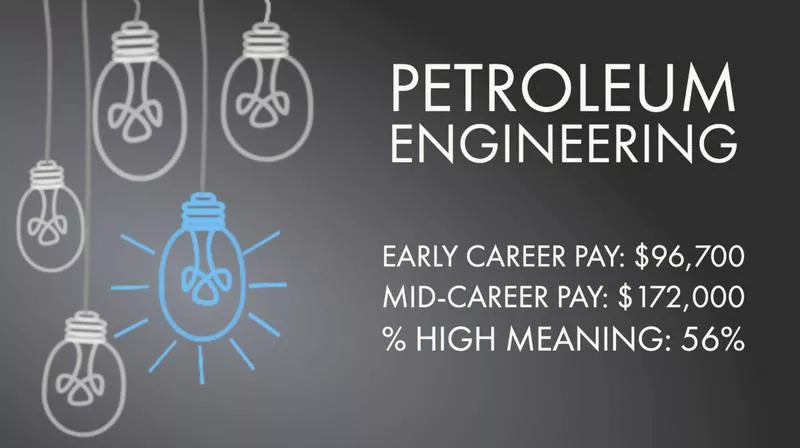
Students pursuing a degree in petroleum engineering learn how to figure out the most efficient and profitable way to extract oil and gas from underground rock formations. This includes evaluating data, estimating costs, and coming up with extraction plans, in addition to monitoring drilling progress. Students are also taught how to design and modify drilling equipment.
There are various types of petroleum engineers, including completions engineers, drilling engineers, production engineers, and reservoir engineers.
Note: All data is from PayScale.
Systems Engineering
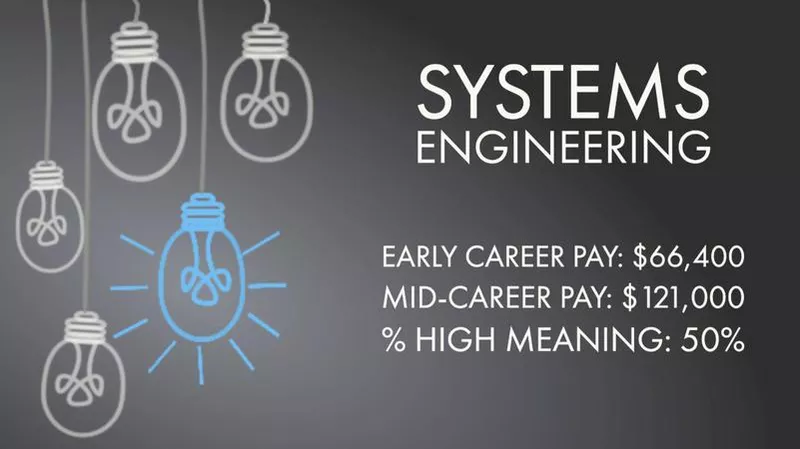
Students who major in systems engineering might choose to specialize in one of a variety of specialties, including systems engineering, cybersecurity systems engineering, biomedical systems engineering, or software systems engineering. Regardless of which track they chose, these students learn the technical skills needed to design and implement systems to meet operational needs, and they learn the communications and physical requirements of systems.
Potential jobs include systems engineers, systems architects, and systems developers.
Actuarial Science

Students who like math will enjoy utilizing statistics, finance and mathematics to help companies gauge the risks associated with making certain business decisions. For example, they may predict the chances and the consequences of a natural disaster, or the probability that clients will become sick, etc.
Many people with this degree become actuaries, but some become insurance appraisers, cost estimators, financial advisors, economists, and statisticians.
Chemical Engineering
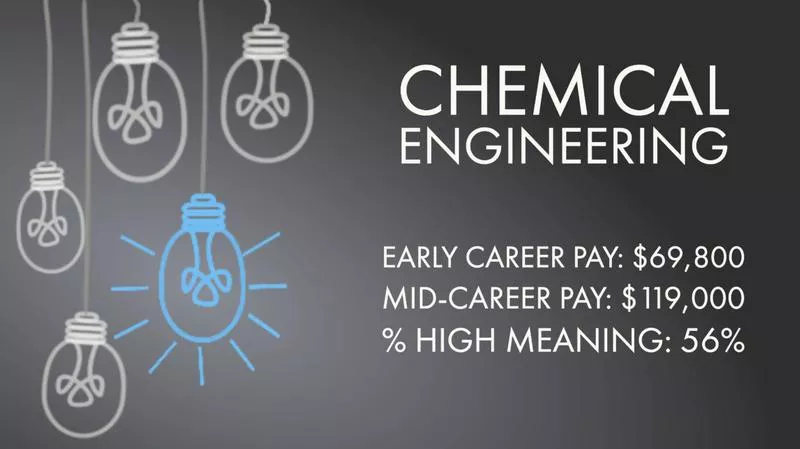
Chemical engineering students study biochemistry, electrochemistry, organic chemistry, and physical chemistry to learn ways to manufacture a variety of products ranging from foods to drugs to detergents, and also petroleum, synthetic rubber, and cement.
Graduates with this degree may be chemical engineers, scientists, process development engineers, process control engineers, or process engineers.
Computer Science & Engineering
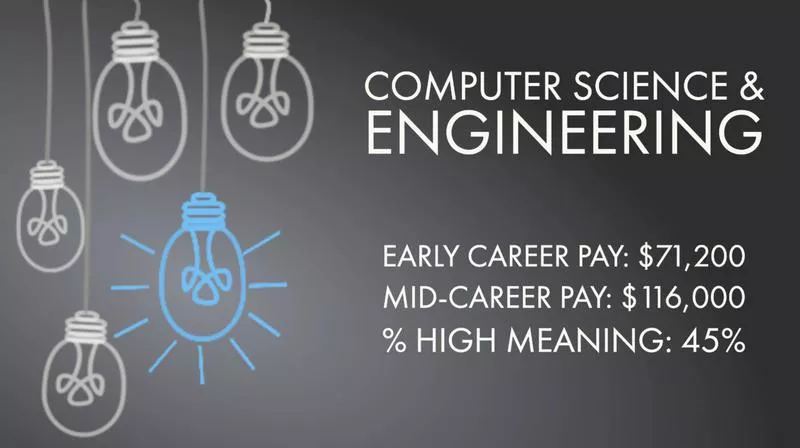
A computer science and engineering degree merges computing, engineering, math, and science. Students learn how to develop computers and networks, process digital signals, and merge hardware and software.
Employment options include computer systems analysts, computer programmers, and a host of other computer science careers.
Nuclear Engineering
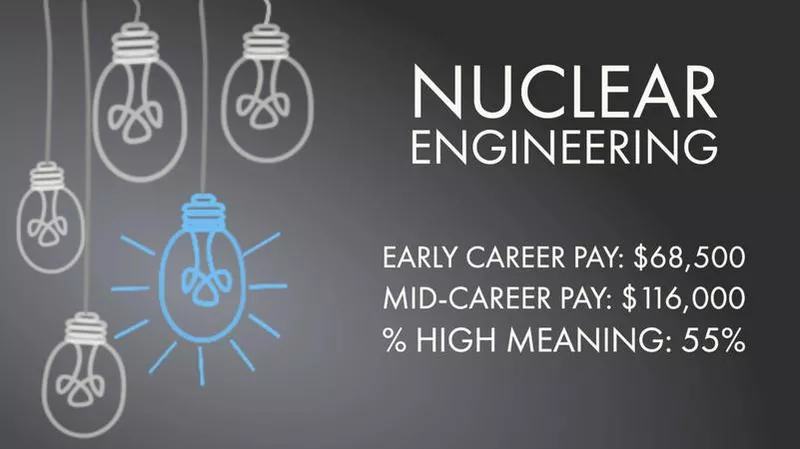
Nuclear engineering majors study the processes included in ensuring the safety of nuclear power plants, and also learn how to design reactor cores and other types of nuclear equipment. They also learn how to find additional uses for nuclear material in medical and other industries.
Career choices include nuclear engineers – who may also be generation engineers, resident inspectors, and system engineers. Some people with nuclear engineering degrees also specialize in nuclear medicine, and others become scientists.
Electronics and Communications Engineering
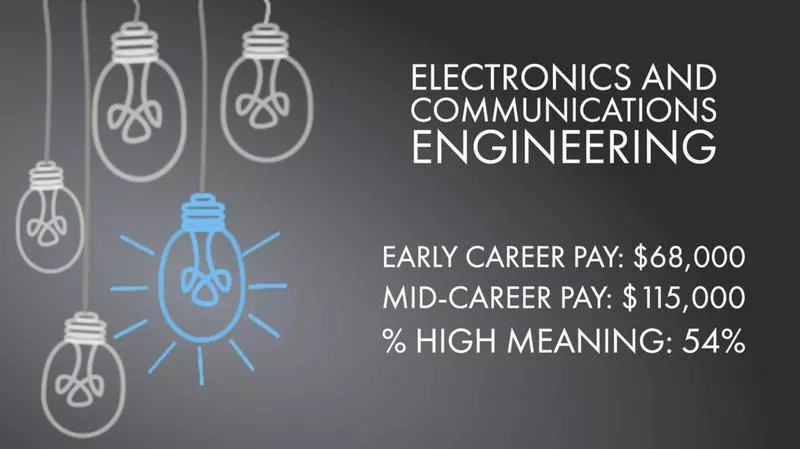
The degree equips students to handle a variety of technologies, including TV, text messaging, and radio. The pursuit of an electronics and communications engineering degree includes signal processing, computer networks, sensors, and control instruments.
Graduates typically become electrical engineers or electronics engineers and can work in software development, fiber optics, and mobile communications.
Electrical & Computer Engineering (ECE)
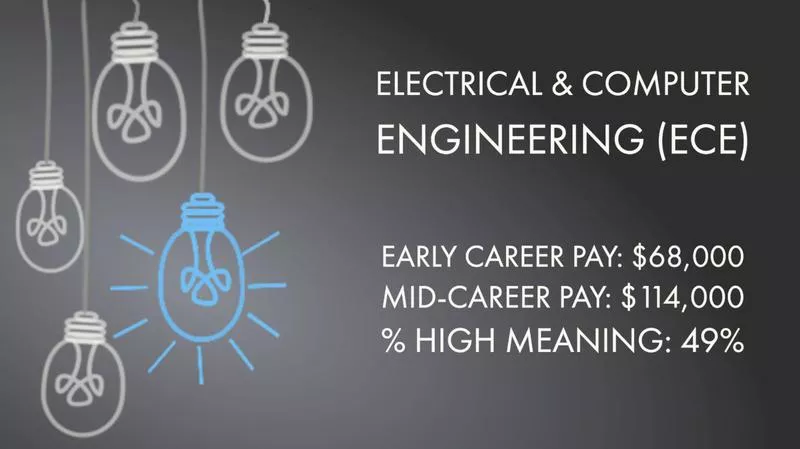
Merging computer engineering and electronics, these students learn to apply circuit design principles, digital theory, and mathematical skills to develop solutions for a variety of problems, such as transporting water, medical issues, and surveying.
Career options include process engineers/technologists, design engineers/technologists and controls engineers/technologists.
Aeronautical Engineering

Students with a degree in aeronautical engineering study flight control and mechanics, fluid dynamics, orbits, launch, and vehicle design. They learn to build and test spacecraft and aircraft, in addition to missiles and satellites.
Career choices include aeronautical engineers, astronautical engineers, aeronautical researchers, and aeronautical designers.
Computer Engineering (CE)
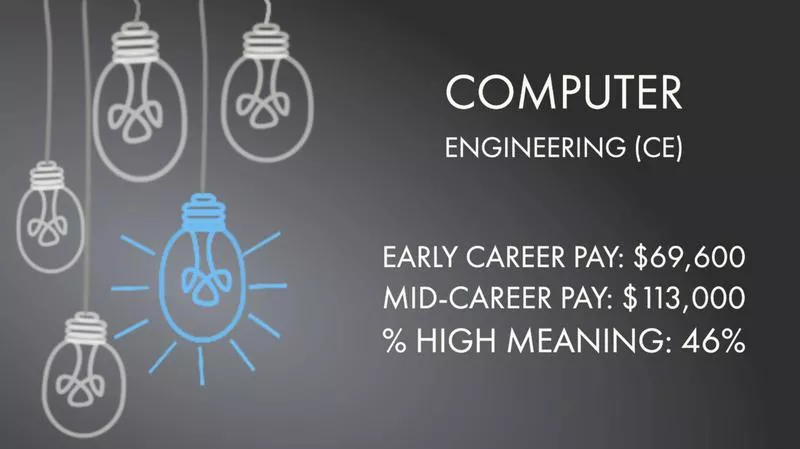
Computer engineering students study discrete mathematics, programming languages, calculus, and digital logic design. They also learn about hardware and software, computer architecture and data structure, and are prepared to engineer computers.
Computer engineering grads may work as computer hardware engineers, architectural and engineering managers, or computer systems analysts.
Computer Science & Mathematics

Students in this major can choose from a variety of concentrations, including software development, scientific computing, cybersecurity, and actuarial science.
Career choices include software engineers, information systems developers, programmers, and financial analysts.
Physics & Mathematics

Combining theory and applications of both physics and mathematics, students in physics and mathematics study quantum theory, vector analysis, and classical theory.
Graduates with this degree can work in either physics, mathematics, or in computer science.
Applied Mathematics
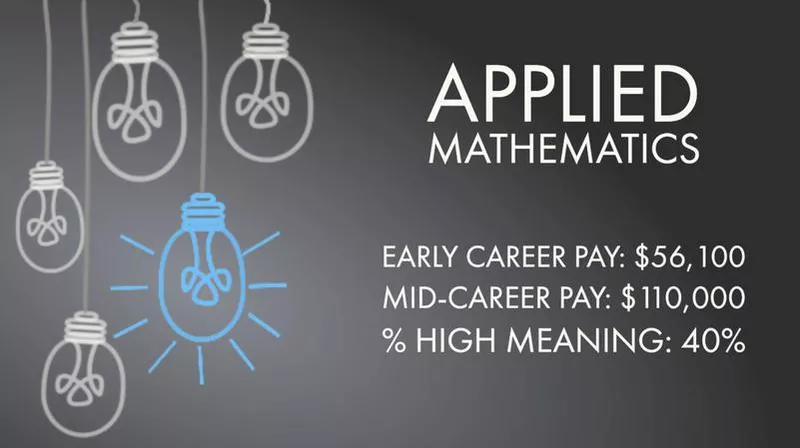
Applied mathematics merges with computer science to analyze and predict information in a variety of fields, including science, data mining, engineering, and economics.
Graduates may work as mathematicians and computational scientists.
Electrical Engineering (EE)
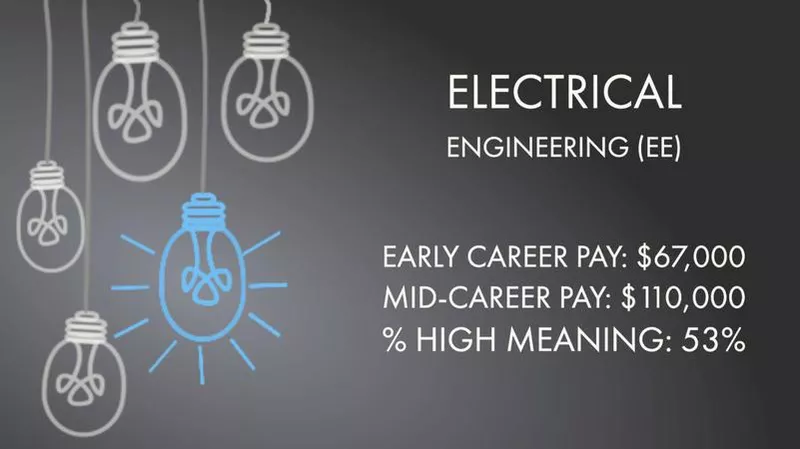
Electrical engineering students learn about electrodynamics, statics, circuit analysis and design, and semiconductor technology. They are equipped to develop, among other things, communications systems, electric motors, and navigation systems.
Electrical engineering majors may become electrical engineers, circuits engineers, and electrical design engineers.
Electrical & Electronics Engineering (EEE)
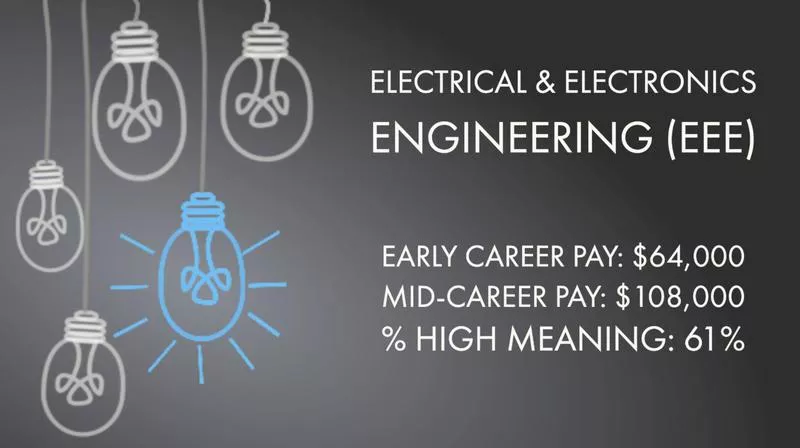
These students study circuit analysis and design, electrodynamics, semiconductor technology, and learn to design electrical and electronic equipment. They gain the skills to design a variety of products, ranging from cell phones to electrical equipment for vehicles and aerospace use.
Graduates may work as electrical engineers, nanosystems engineers, test engineers, or electronics engineers.
Industrial & Systems Engineering
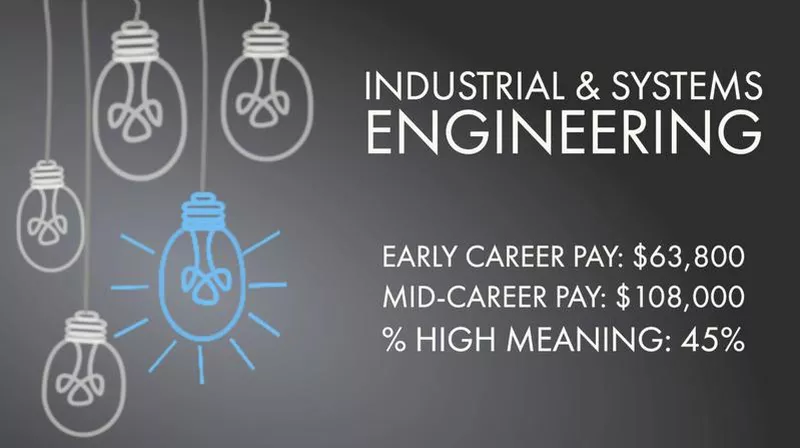
Industrial and systems engineering majors study such topics as manufacturing engineering, engineering statistics, and engineering economics. They also learn about production design and specific ways to improve organizational efficiency.
Graduates can pursue a variety of career choices, including process engineers, industrial engineers, supply chain engineers, and operations engineers.
Materials Science
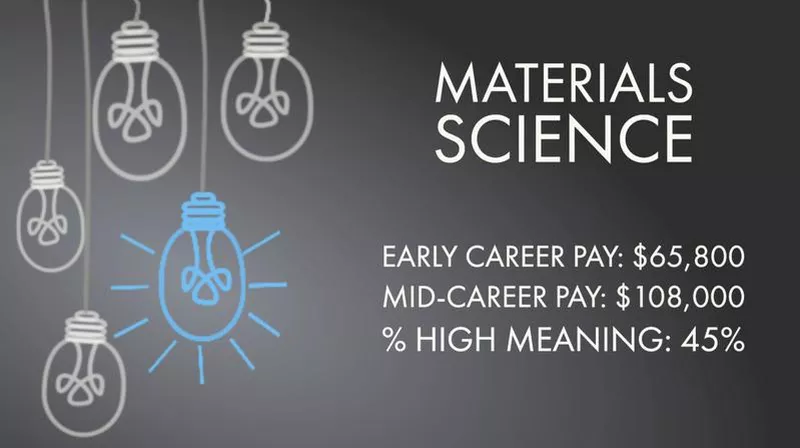
Students pursuing this major learn about phase relationships in materials, composite materials, and materials engineering design. As graduates, they may create new applications for metals, plastics, glass, graphite, and other materials.
Jobs include materials engineers, materials development engineers, metallurgical engineers, and materials research engineers.
Physics & Mathematics

Majoring in this physical science allows students to study such subjects as particle physics, modern physics, nuclear physics, and quantum mechanics.
With a bachelor’s degree, job opportunities include becoming chemical engineers, research assistants, geoscientists, or even work in robotics and web development.
Computer Science (CE)
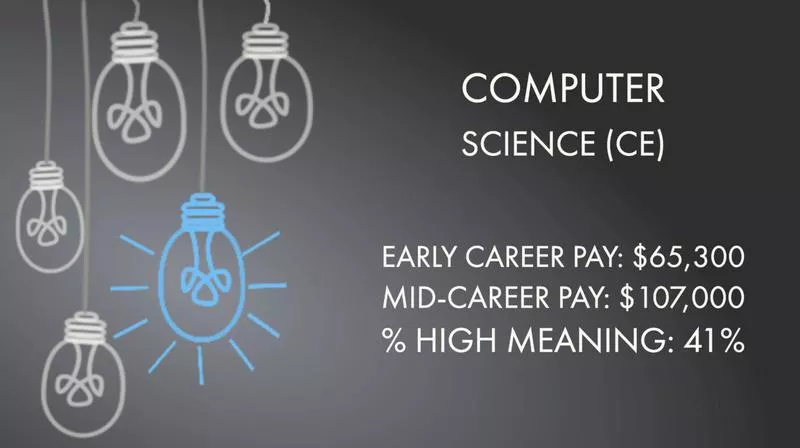
Computer science majors study software engineering, data structures and algorithms, and digital system design. They learn a variety of skills, including how to write computer code, analyze and repair systems, and evaluate interfaces.
CS grads may work as computer network architects, computer programmers, computer systems analysts, software developers, and information security analysts.
Engineering

A general engineering degree teaches students about physics, chemistry, scientific visualization, and other problem-solving principles. They learn how to design and develop new products and processes.
Graduates can work in a variety of engineering specialties, and also in computer science in such jobs as computer systems administrators.
Industrial Distribution

Industrial distribution majors merge engineering technology, business, science, math, and supply chain management to create and refine the management of wholesale distribution – as well as relationships with various other entities – to ensure the process is as efficient as possible.
Graduates typically work as industrial distribution engineers.
Mining Engineering
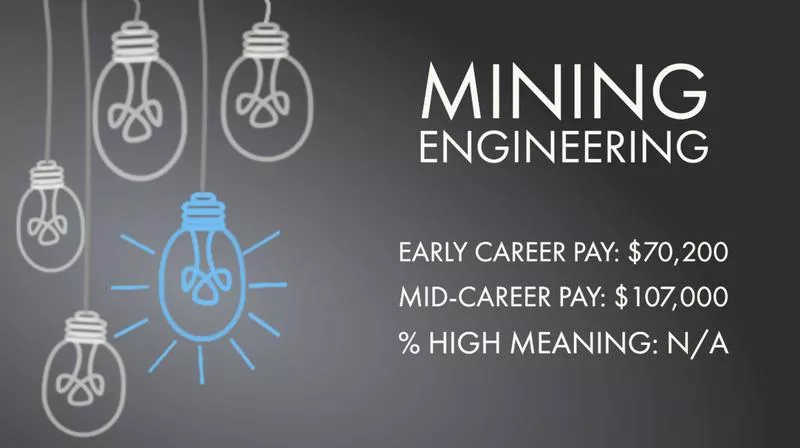
Mining engineering teaches students how to develop mining equipment and ways to efficiently and safely extract minerals, coal, and metals from underneath the earth’s surface. They also learn how to ensure that mines are safe for workers, and develop mining safety procedures.
Graduates may become mining engineers, project engineers, mine engineering managers, and geologists.
Aerospace Engineering

Students majoring in aerospace engineering learn about strength of materials, fluid dynamics and thermodynamics, and also aerospace propulsion.
Graduates typically work to design and test aircraft or spacecraft and associated materials as aerospace engineers, flight controls engineers, systems engineers, and aeronautical engineers.
Government

Government majors study political theory, political campaigns, elections, and judicial processes. Students also learn to use data to analyze public and foreign policies and judicial processes.
Graduates may become politicians or policy analysts, or they may be assistants, or researchers working for political campaigns or political scientists.
Biomedical Engineering (BME)
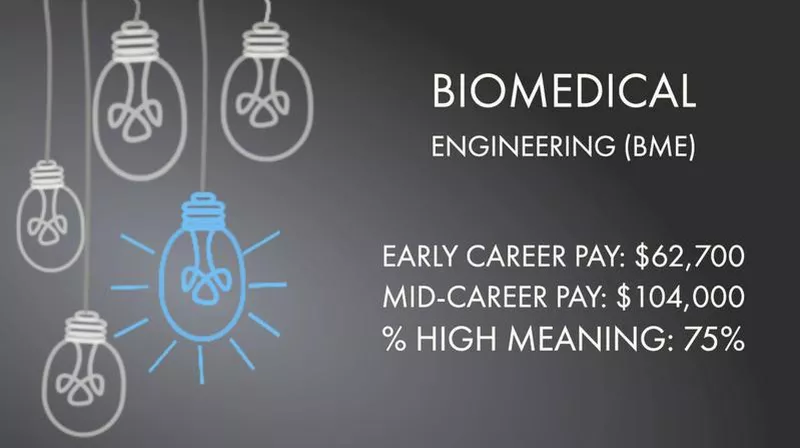
Merging engineering and biomedical sciences, biomedical engineering students study bioinformatics, biomaterials, molecular and cell biology, and organic chemistry. Using this knowledge, graduates design a variety of products including medical devices and artificial organs and body parts, in addition to working in systems physiology and bioinstrumentation.
Types of jobs for these graduates include biomedical engineers, clinical engineers, and research engineers.
Industrial Engineering (IE)
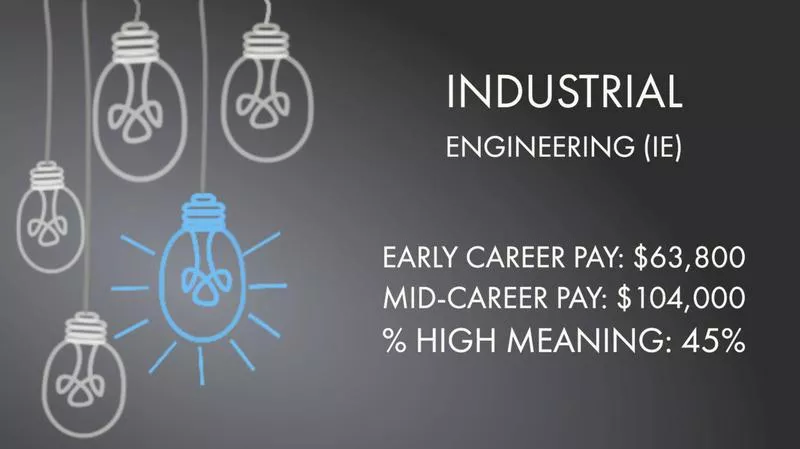
Industrial engineering majors study inventory management, manufacturing engineering, and facilities planning and design. They learn how to help companies function more efficiently by streamlining production costs, evaluating supply chains, eliminating waste, and delivering products more efficiently.
Career choices include industrial engineers, production engineers, supply chain engineers, and manufacturing specialists.
Structural Engineering (SE)
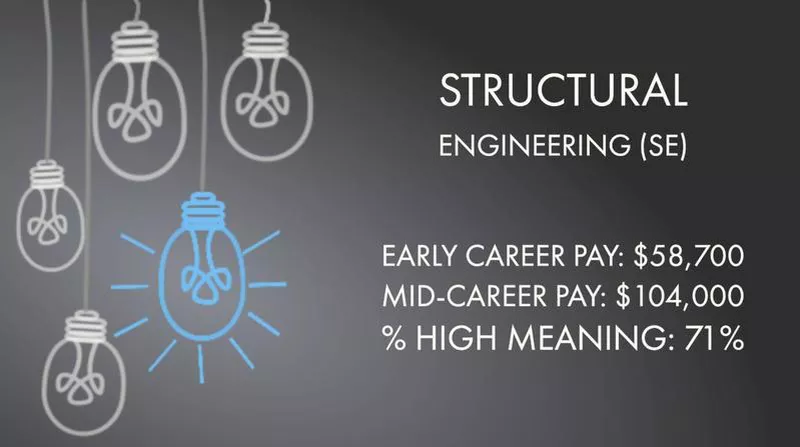
This major teaches students how to merge principles of science and math to make bridges, dams, roads, tunnels, and buildings safer. In addition to making sure that these structures don’t collapse, students learn how to maximize the functionality of these constructions.
Typical jobs include structural engineers, civil engineers, design engineers, and project engineers.
Mechanical Engineering (ME)
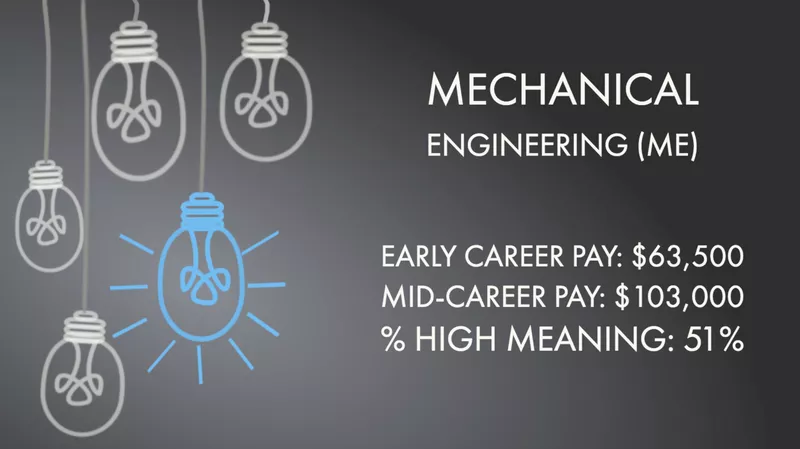
Mechanical engineering majors start with foundation in mathematics, calculus, chemistry, and physics. They then layer in more advanced studies such as fluid dynamics and materials science.
Physician Assistant Studies

PA degrees share many of the same courses as traditional pre-med programs and often add practical patient care. US News lists Duke, University of Iowa and Emory as the top 3 PA programs in the United States.
Construction Engineering Management

Construction Engineering Management programs prepare students to become construction engineers and managers. Courses include construction safety, modeling, virtual reality and project management.
Finance & Real Estate

Most programs cover both residential and business real estate and include courses in negotiations, the real estate industry, and subjects to help you pass your state’s licensing exams for real estate agents and brokers.
Economics

Economics is a mathematical and scientific study of markets and wealth. Courses cover all aspects of the production, distribution, and consumption of goods and services.
Electronics Engineering

Electronics engineers design and develop all sorts of electronic equipment, such as electric motors, radar and navigation systems, communications systems, and power generation equipment.
Engineering Management
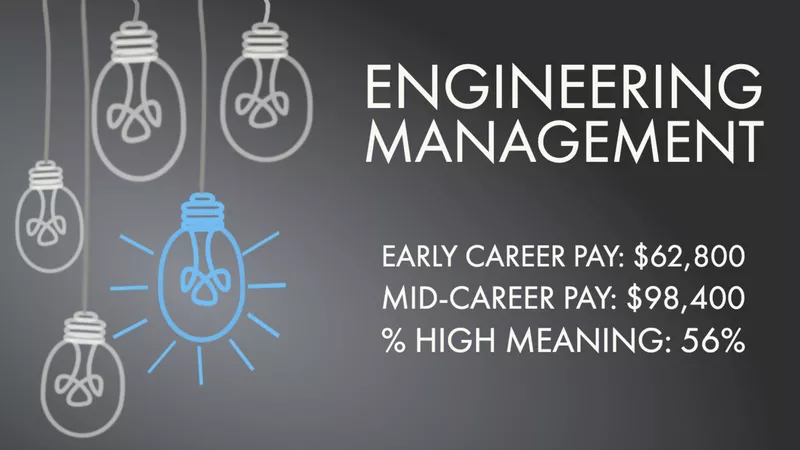
Engineering management (often a graduate-level program, but also offered as an undergraduate degree) is geared for engineers, scientists, and computer scientists who want to add management and leadership skills to their resume.
Finance & Economics

Economics and finance are interrelated fields that help graduates understand market dynamics.
Software Engineering

Want to work for Facebook or Google? Try a degree in software engineering!
Biochemistry & Molecular Biology

Biochemistry and molecular biology majors spend a lot of time in the lab. They master experimental techniques used to understand living molecules.
Statistics

Statistics majors often include advanced mathematics and computer programming in their studies. Statisticians are highly sought in a wide range of industries, including biotechnology, finance, genomics, marketing, pharmaceuticals, and AI.
Management Information Systems (MIS)
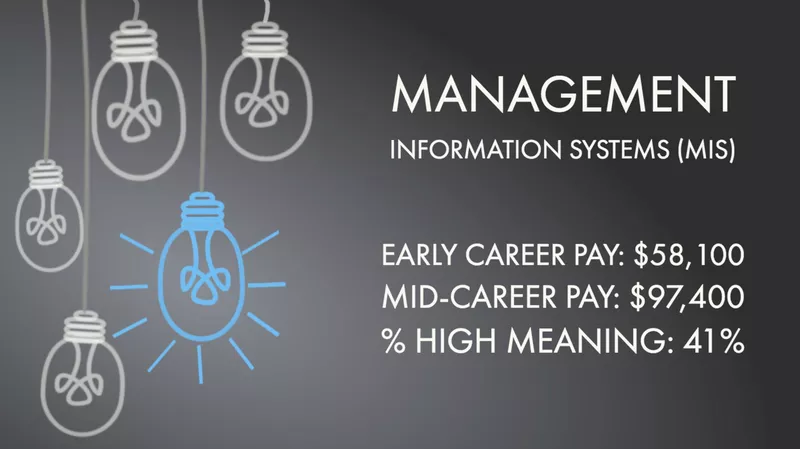
MIS majors study how businesses can use information and data to optimize a company’s operations.
Building Construction Management

All major construction projects need leadership and management expertise. Building construction engineers prepare to oversee both residential and commercial projects.
Civil Engineering (CE)
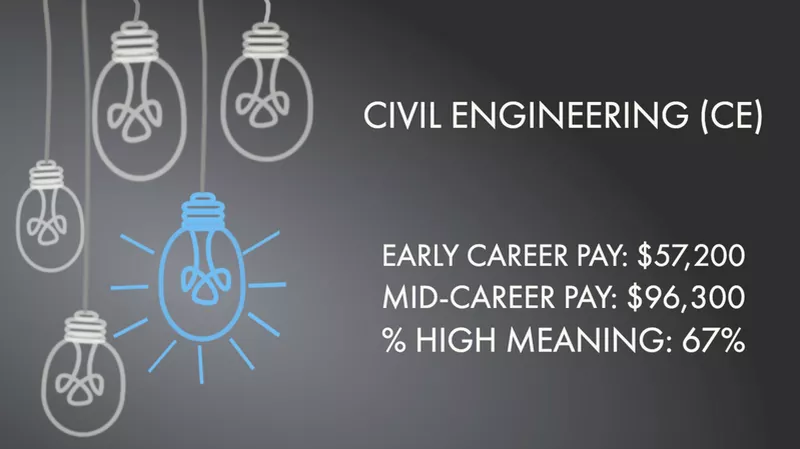
Civil engineering is a professional degree focused on the design, construction, and maintenance of physical works such as roads, bridges, and buildings.
Mathematics

Mathematics forms a solid foundation for many masters-level studies, as well as a launch pad for specialties such as AI and machine learning.
Computing

Computing majors study both computer science theory as well as more operational courses including development and engineering.
Mathematics & Statistics

Statistics, machine learning, and artificial intelligence are fields of applied mathematics that rely heavily on computers. These students often minor in computer science or take additional programming courses.
Management Science
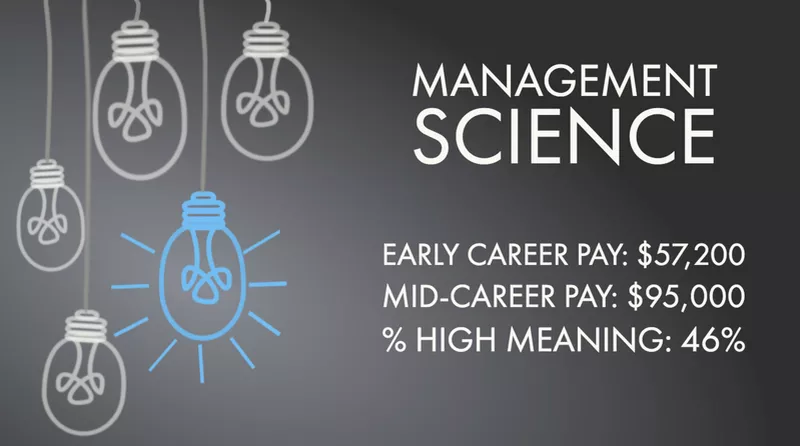
Management science majors learn how to use math and science to design systems, make complex decisions, and solve multi-dimensional problems for businesses.
Marketing & International Business

Students hone their marketing skills while also learning about the cultural and social complexities of a global marketplace.
Packaging Science

Manufacturing, distribution, and marketing must all be taken into account in the design of the package for any given product.
Construction Management

Construction management majors learn how to manage and supervise complex construction projects. The scope usually includes scheduling, budgeting, and managing materials and staff.
Building Construction (BC)

Building construction courses cover everything from building codes and cost estimating to carpentry and plumbing.
Manufacturing Engineering

Manufacturing engineering students focus on the research, design and development of machines, tools and systems.